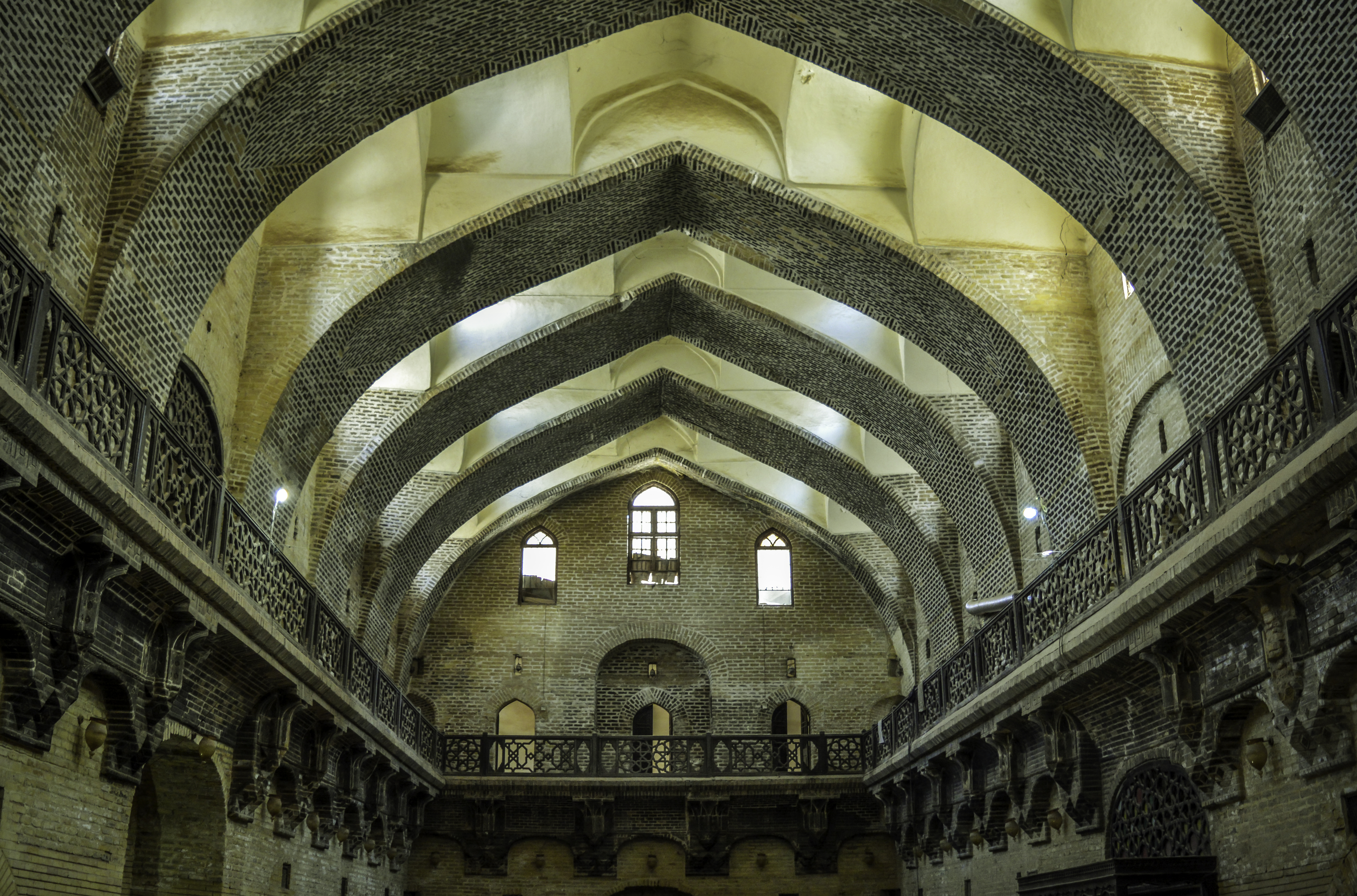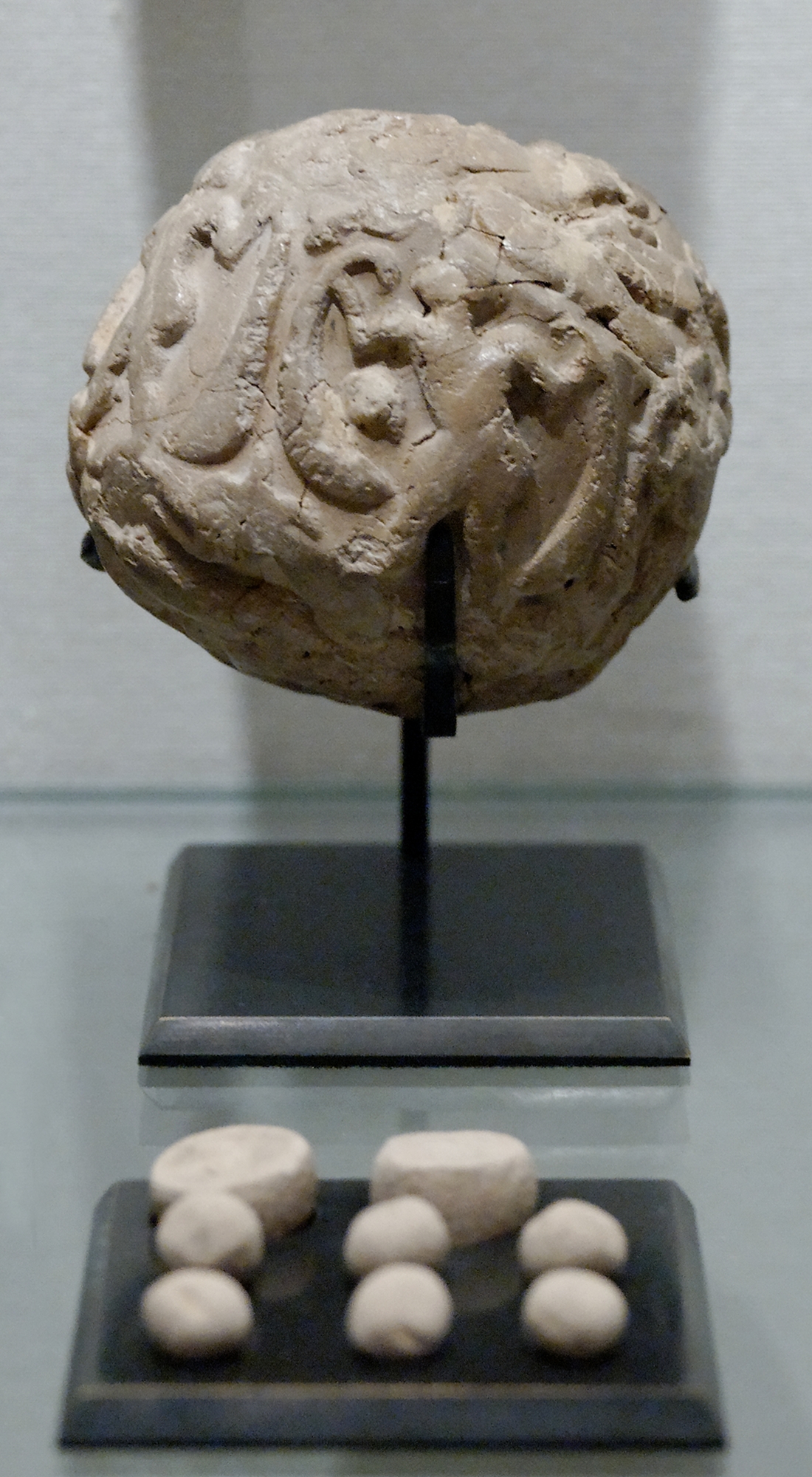|
Merdiban
Merdiban was an accounting method used by the Ottoman Empire, Abbasid Caliphate, and Ilkhanate, especially for recording tax payments and liabilities. Etymology The word "Merdiban" is derived from ''merdiven'', a word of Persian origin meaning "staircase" or "ladder". The Ottomans themselves generally called this method ''muhasebe usulü'' "method of accounting". History Abbasid accounting techniques were inherited by the Ilkhanate and then the Ottoman Empire; spanning several centuries until modern double-entry accounting was adopted post-Tanzimat. Merdiban originated in the Abbasid Caliphate; the first likely example has been found in an eighth-century government document. After the conquest of Baghdad by Mongol forces in 1258, many Persian and Arab officials were employed by the Ikhanate. As the Mongols lacked strong state institutions, local systems were adopted, including accounting techniques. For instance, the Abbasids had a kind of daily ledger called a Defter-ul Yevmiy ... [...More Info...] [...Related Items...] OR: [Wikipedia] [Google] [Baidu] |
Ilkhanate
The Ilkhanate or Il-khanate was a Mongol khanate founded in the southwestern territories of the Mongol Empire. It was ruled by the Il-Khans or Ilkhanids (), and known to the Mongols as ''Hülegü Ulus'' (). The Ilkhanid realm was officially known as the Land of Iran or simply Iran. It was established after Hulegu Khan, Hülegü, the son of Tolui and grandson of Genghis Khan, inherited the West Asian and Central Asian part of the Mongol Empire after his brother Möngke Khan died in 1259. The Ilkhanate's core territory was situated in what is now the countries of Iran, Azerbaijan, and Turkey. At its greatest extent, the Ilkhanate also included parts of modern Iraq, Syria, Armenia, Georgia (country), Georgia, Afghanistan, Turkmenistan, Pakistan, part of modern Dagestan, and part of modern Tajikistan. Later Ilkhanid rulers, beginning with Ghazan in 1295, converted to Islam. In the 1330s, the Ilkhanate was ravaged by the Black Death. The last ilkhan, Abu Sa'id Bahadur Khan, died in 133 ... [...More Info...] [...Related Items...] OR: [Wikipedia] [Google] [Baidu] |
Ottoman Empire
The Ottoman Empire (), also called the Turkish Empire, was an empire, imperial realm that controlled much of Southeast Europe, West Asia, and North Africa from the 14th to early 20th centuries; it also controlled parts of southeastern Central Europe, between the early 16th and early 18th centuries. The empire emerged from a Anatolian beyliks, ''beylik'', or principality, founded in northwestern Anatolia in by the Turkoman (ethnonym), Turkoman tribal leader Osman I. His successors Ottoman wars in Europe, conquered much of Anatolia and expanded into the Balkans by the mid-14th century, transforming their petty kingdom into a transcontinental empire. The Ottomans ended the Byzantine Empire with the Fall of Constantinople, conquest of Constantinople in 1453 by Mehmed II. With its capital at History of Istanbul#Ottoman Empire, Constantinople (modern-day Istanbul) and control over a significant portion of the Mediterranean Basin, the Ottoman Empire was at the centre of interacti ... [...More Info...] [...Related Items...] OR: [Wikipedia] [Google] [Baidu] |
Abbasid Caliphate
The Abbasid Caliphate or Abbasid Empire (; ) was the third caliphate to succeed the Islamic prophet Muhammad. It was founded by a dynasty descended from Muhammad's uncle, Abbas ibn Abd al-Muttalib (566–653 CE), from whom the dynasty takes its name. After overthrowing the Umayyad Caliphate in the Abbasid Revolution of 750 CE (132 AH), they ruled as caliphs based in modern-day Iraq, with Baghdad being their capital for most of their history. The Abbasid Revolution had its origins and first successes in the easterly region of Khurasan, far from the Levantine center of Umayyad influence. The Abbasid Caliphate first centered its government in Kufa, modern-day Iraq, but in 762 the caliph al-Mansur founded the city of Baghdad as the new capital. Baghdad became the center of science, culture, arts, and invention in what became known as the Golden Age of Islam. By housing several key academic institutions, including the House of Wisdom, as well as a multiethnic and multi- ... [...More Info...] [...Related Items...] OR: [Wikipedia] [Google] [Baidu] |
Taxation
A tax is a mandatory financial charge or levy imposed on an individual or legal person, legal entity by a governmental organization to support government spending and public expenditures collectively or to Pigouvian tax, regulate and reduce negative Externality, externalities. Tax compliance refers to policy actions and individual behavior aimed at ensuring that taxpayers are paying the right amount of tax at the right time and securing the correct tax allowances and tax relief. The first known taxation occurred in Ancient Egypt around 3000–2800 BC. Taxes consist of direct tax, direct or indirect taxes and may be paid in money or as labor equivalent. All countries have a tax system in place to pay for public, common societal, or agreed national needs and for the functions of government. Some countries levy a flat tax, flat percentage rate of taxation on personal annual income, but most progressive tax, scale taxes are progressive based on brackets of yearly income amounts. Most ... [...More Info...] [...Related Items...] OR: [Wikipedia] [Google] [Baidu] |
Tanzimat
The (, , lit. 'Reorganization') was a period of liberal reforms in the Ottoman Empire that began with the Edict of Gülhane of 1839 and ended with the First Constitutional Era in 1876. Driven by reformist statesmen such as Mustafa Reşid Pasha, Mehmed Emin Âli Pasha, and Fuad Pasha, under Sultans Abdülmecid I and Abdülaziz, the Tanzimat sought to reverse the empire's decline by modernizing legal, military, and administrative systems while promoting Ottomanism (equality for all subjects). Though it introduced secular courts, modern education, and infrastructure like railways, the reforms faced resistance from conservative clerics, exacerbated ethnic tensions in the Balkans, and saddled the empire with crippling foreign debt. The Tanzimat’s legacy remains contested: some historians credit it with establishing a powerful national government, while others argue it accelerated imperial fragmentation. Different functions of government received reform, were completely reor ... [...More Info...] [...Related Items...] OR: [Wikipedia] [Google] [Baidu] |
Baghdad
Baghdad ( or ; , ) is the capital and List of largest cities of Iraq, largest city of Iraq, located along the Tigris in the central part of the country. With a population exceeding 7 million, it ranks among the List of largest cities in the Arab world, most populous cities in the Middle East and Arab world and forms 22% of the Demographics of Iraq, country's population. Spanning an area of approximately , Baghdad is the capital of its Baghdad Governorate, governorate and serves as Iraq's political, economic, and cultural hub. Founded in 762 AD by Al-Mansur, Baghdad was the capital of the Abbasid Caliphate and became its most notable development project. The city evolved into a cultural and intellectual center of the Muslim world. This, in addition to housing several key academic institutions, including the House of Wisdom, as well as a multi-ethnic and multi-religious environment, garnered it a worldwide reputation as the "Center of Learning". For much of the Abbasid era, duri ... [...More Info...] [...Related Items...] OR: [Wikipedia] [Google] [Baidu] |
Ghazan
Mahmud Ghazan (5 November 1271 – 11 May 1304) (, Ghazan Khan, sometimes westernized as Casanus was the seventh ruler of the Mongol Empire's Ilkhanate division in modern-day Iran from 1295 to 1304. He was the son of Arghun, grandson of Abaqa Khan and great-grandson of Hulegu Khan, continuing a long line of rulers who were direct descendants of Genghis Khan. Considered the most prominent of the Ilkhans, he is perhaps best known for converting to Islam and meeting Imam Ibn Taymiyya in 1295 when he took the throne, marking a turning point for the dominant religion of the Mongols in West Asia: Iran, Iraq, Anatolia, and the South Caucasus. One of his many principal wives was Kököchin, a Mongol princess (originally betrothed to Ghazan's father Arghun before his death) sent by his great-uncle Kublai Khan. Military conflicts during Ghazan's reign included war with the Mamluk Sultanate for control of Syria and battles with the Turko-Mongol Chagatai Khanate. Ghazan also pursued dipl ... [...More Info...] [...Related Items...] OR: [Wikipedia] [Google] [Baidu] |
Double Entry Accounting
Double-entry bookkeeping, also known as double-entry accounting, is a method of bookkeeping that relies on a two-sided accounting entry to maintain financial information. Every entry to an account requires a corresponding and opposite entry to a different account. The double-entry system has two equal and corresponding sides, known as debit and credit; this is based on the fundamental accounting principle that for every debit, there must be an equal and opposite credit. A transaction in double-entry bookkeeping always affects at least two accounts, always includes at least one debit and one credit, and always has total debits and total credits that are equal. The purpose of double-entry bookkeeping is to allow the detection of financial errors and fraud. For example, if a business takes out a bank loan for $10,000, recording the transaction in the bank's books would require a DEBIT of $10,000 to an asset account called "Loan Receivable", as well as a CREDIT of $10,000 to an asse ... [...More Info...] [...Related Items...] OR: [Wikipedia] [Google] [Baidu] |
Madrasah
Madrasa (, also , ; Arabic: مدرسة , ), sometimes romanized as madrasah or madrassa, is the Arabic word for any type of educational institution, secular or religious (of any religion), whether for elementary education or higher learning. In countries outside the Arab world, the word usually refers to a specific type of religious school or college for the study of the religion of Islam (loosely equivalent to a Christian seminary), though this may not be the only subject studied. In an architectural and historical context, the term generally refers to a particular kind of institution in the historic Muslim world which primarily taught Islamic law and jurisprudence (''fiqh''), as well as other subjects on occasion. The origin of this type of institution is widely credited to Nizam al-Mulk, a vizier under the Seljuks in the 11th century, who was responsible for building the first network of official madrasas in Iran, Mesopotamia, and Khorasan. From there, the constru ... [...More Info...] [...Related Items...] OR: [Wikipedia] [Google] [Baidu] |
History Of Accounting
The history of accounting or accountancy can be traced to ancient civilizations.Keith, Robson. 1992. “Accounting Numbers as ‘inscription’: Action at a Distance and the Development of Accounting.” ''Accounting, Organizations and Society'' 17 (7): 685–708. The early development of accounting dates to ancient Mesopotamia, and is closely related to developments in writing, counting and money and early auditing systems by the ancient Egyptians and Babylonians. By the time of the Roman Empire, the government had access to detailed financial information. Indian merchants developed a double-entry bookkeeping system, called ''bahi-khata'', some time in the first millennium. The Italian Luca Pacioli, recognized as ''The Father of accounting and bookkeeping'' was the first person to publish a work on double-entry bookkeeping, and introduced the field in Italy. The modern profession of the chartered accountant originated in Scotland in the nineteenth century. Accountants often ... [...More Info...] [...Related Items...] OR: [Wikipedia] [Google] [Baidu] |









